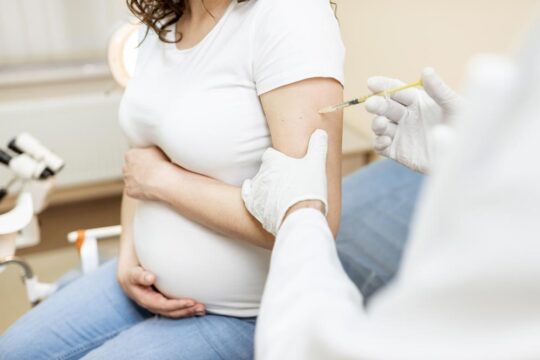Advertisment
Combination antiretroviral therapy lowers risk of malaria recurrence in Pediatric HIV
FDA Highlights by Bruce Sylvester – Combination antiretroviral therapy significantly reduces the risk of recurrent malaria among HIV-positive children, according to a study published on Nov. 29, in the New England Journal of Medicine.
Combination treatment with of lopinavir and ritonavir led to a reduction of 40% in the rate of malaria among a group of HIV-positive infants and children aged up to 6 years in Uganda, compared to children receiving non-nucleoside reverse transcriptase inhibitors (NNRTIs). All of the children were also treated with anti-malarial drugs.
The combination treatment did not inhibit an initial malaria infection, but reduced recurrence of the disease following a successful treatment.
The investigators noted anti-malarial drugs remained higher in the blood children who had received the protease inhibitors, possibly explaining the prevention of recurrence.
“It’s possible that these protease inhibitors prevent antimalarial drugs from breaking down or have some other additive effect against the malarial parasite,” said Lynne Mofenson, MD, Pediatric, Adolescent, and Maternal AIDS Branch at the Eunice Kennedy Shriver National Institute of Child Health and Human Development, Bethesda, Maryland. “Laboratory studies also suggest that protease inhibitors can block the malaria parasite outright. Finding out why this drug combination is effective is an area for further study.”
The investigators enrolled 170 HIV-positive infants and children in the study. They received either an NNRTI (nevirapine for children aged younger than 3 years or efavirenz for children aged older than 3 years) or the protease inhibitor-based treatment. The parents of the children received insecticide-treated nets. The children also received vitamins, a clean source of water, and medication to prevent infection with the malaria parasite.
The researchers found that the children’s risk of developing malaria in the first 6 months of their anti-HIV treatment was greater than 40%. The risk was slightly higher in the nevirapine-treated group, but not significantly statistically higher.
Children with malaria were successfully treated for it during the study, and 41% of those taking an NNRTI developed another case of malaria within 28 days of initially clearing the parasite the first time. Only 14% of subjects using combination lopinavir-ritonavir developed another case of malaria within the 28-day time-frame.
Comparing the groups for 63 days, the investigators reported that 54% of the NNRTI subjects had malaria recurrence, compared with 28% of the lopinavir-ritonavir treated subjects.
Notably, blood tests conducted one week after commencement of malaria treatment showed indicated that blood levels of an anti-malaria drug were higher among children on the protease inhibitor combination regimen than among their counterparts taking the nevirapine-based treatment.
“The finding that this protease inhibitor combination not only appears more effective at treating HIV than NNRTIs, but also protects against malaria recurrence, merits its consideration for children living in areas where malaria is rampant,” said Dr. Mofenson.





